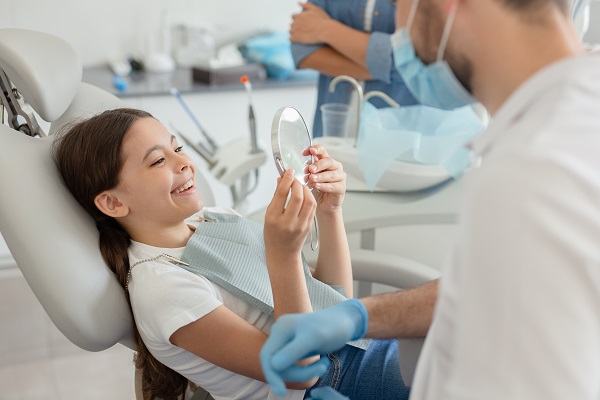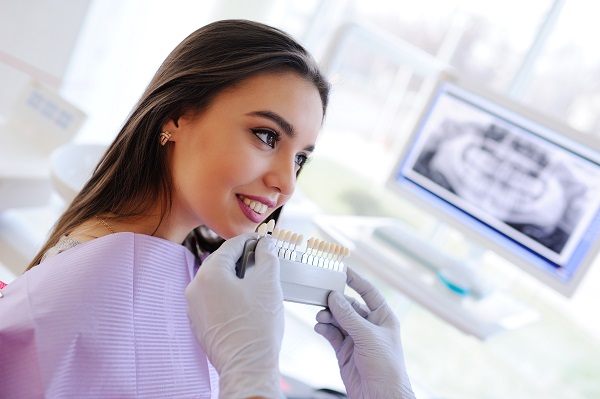A Dentist Explains How to Know Whether You Grind Your Teeth

Do you think you might be grinding your teeth and are looking for a dentist's opinion? Have you ever woken up with a stiff or sore jaw? Do you have a dull, throbbing headache upon waking in the morning?
If so, it may be time for you to visit your dentist. Both of these scenarios are telltale signs that you are grinding your teeth while you sleep. Medically termed bruxism, grinding your teeth can lead to serious oral health issues if not addressed by your dentist.
What is bruxism?
Bruxism, commonly known as teeth grinding, is a condition in which you grind or clench your teeth. This can happen unconsciously while you are awake, or during sleep. In cases of clenching and grinding while asleep, this condition is considered a sleep-related movement disorder. It has been shown that people who have sleep bruxism are more likely to have other sleep disorders, such as snoring or sleep apnea.
How to tell if you grind your teeth
If you suspect you are suffering from bruxism, there are several signs to look out for:
- Tight or sore jaw muscles
- Flattened teeth
- Cracked, chipped, or loose teeth
- Tooth pain or sensitivity
- Dull, achy pain around your ears or temples
- Temporomandibular joint (TMJ) pain, clicking or grinding when opening your mouth
If you are noticing any of these signs or symptoms, the easiest way to confirm whether you are grinding your teeth is by visiting your dentist for an official diagnosis.
Causes of teeth grinding
There are a variety of reasons why people grind their teeth. It is not entirely known what causes bruxism, but it is thought to be due to a combination of physical, psychological and genetic factors. These can include stress and anxiety, an abnormal bite, aggressive or competitive personality types, missing or crooked teeth, other family members with bruxism, or medical disorders such as Parkinson’s disease, epilepsy, gastroesophageal reflux disorder (GERD), or attention-deficit/hyperactivity disorder (ADHD).
Bruxism may also be a side effect of some medications, such as certain antidepressants.
How can your dentist help?
Your dentist is the first person you should visit if you suspect that you are grinding your teeth. During a dental exam, your dentist will look for signs of bruxism such as excessive wear on your teeth, including cracks, chips or loose teeth. Some options to help you reduce or eliminate grinding include:
- Wearing a mouth guard to protect your teeth
- Wearing a splint, which keeps your teeth separated
- Wearing a Mandibular Advancement Device (MAD) to keep your jaw in a fixed position
- Avoid alcohol — alcohol has been shown to intensify grinding during sleep
- Cut back on or avoid foods that contain caffeine
- Use stress management techniques
- Behavioral therapy — training yourself to hold your jaw and mouth in a position to avoid grinding
The good news
The good news is that bruxism, or grinding your teeth, is a very treatable condition. If you suspect that you are grinding your teeth, visit your dentist as soon as possible to discuss your options for reducing or eliminating bruxism. The sooner you catch and treat this condition, the less pain and damage you will endure.
Request an appointment here: https://www.leardidental.com or call Leardi Family Dentistry at (610) 444-8744 for an appointment in our Kennett Square office.
Check out what others are saying about our services on Yelp: Read our Yelp reviews.
Recent Posts
A kid-friendly dentist treats oral health concerns in children. However, an equally important part of their job is to work with parents to improve their child’s oral hygiene at home. This is because the majority of oral care takes place away from the office, so parents knowing how to help their child maintain a beautiful…
A dental implants restoration can replace a missing tooth that falls out naturally, gets knocked out or is extracted. A dental implant restoration is often recommended after tooth extraction, as it prevents bone loss from occurring and offers cosmetic and functional benefits. There are several ways to replace a missing tooth after an extraction, including with…
Preventive dental care is a great way to help reduce the risk of oral health conditions. Preventive dental care includes regular checkups, brushing teeth twice a day, and flossing at least once daily. These tasks can be time-consuming and seem trivial, but they are crucial for maintaining good oral hygiene. The American Dental Association recommends that…
If you desire a more aesthetically pleasing smile, dental veneers are options that you should consider. Veneers are thin, customizable shells created to cover the front sides of the teeth. A dentist will often suggest this option when there are imperfections on the teeth, some of which are covered in this article.Teeth gaps are called…


